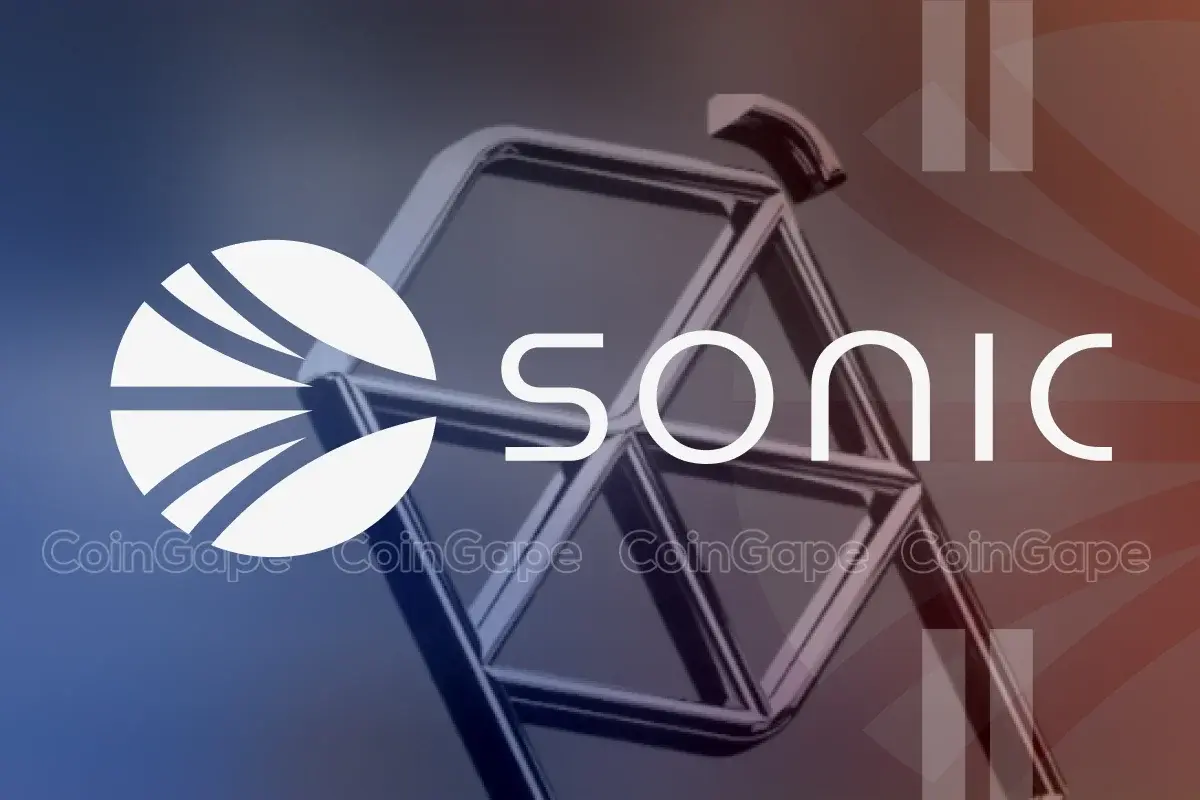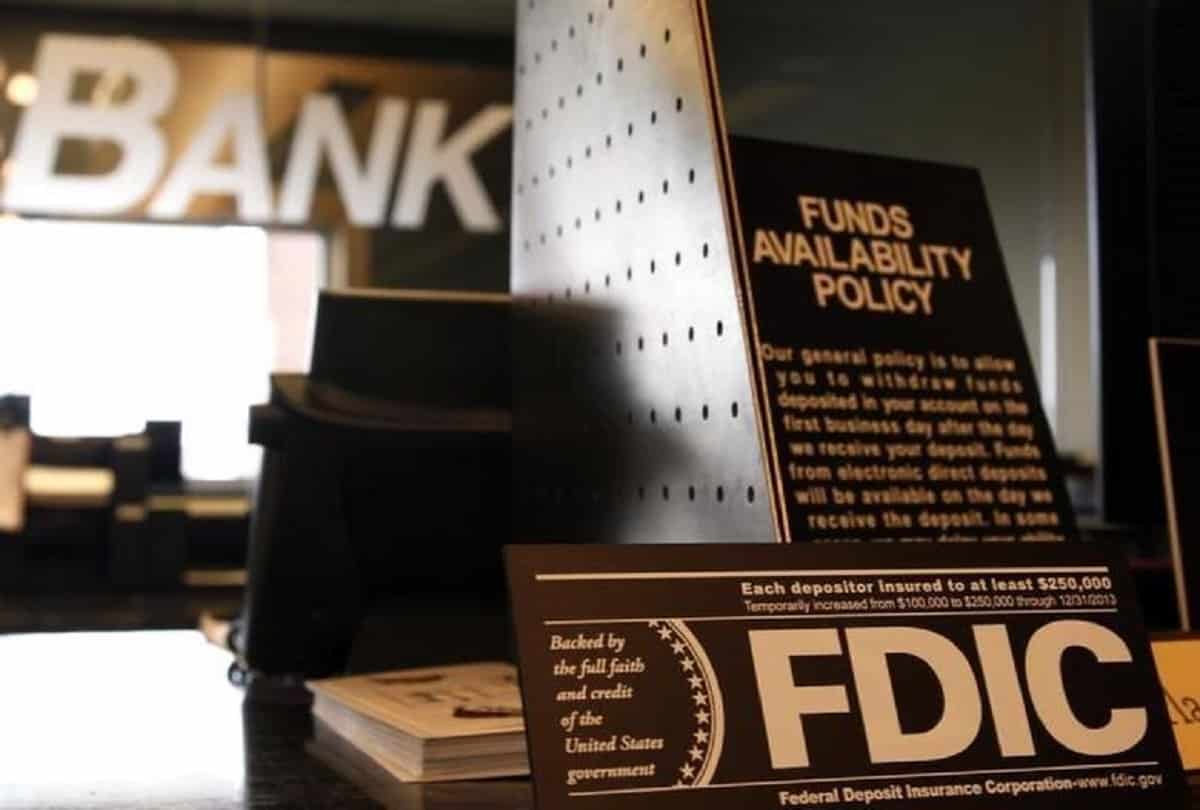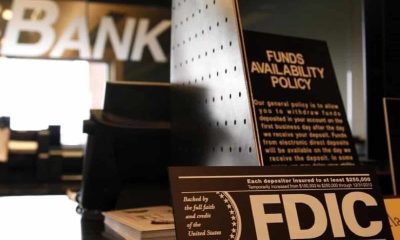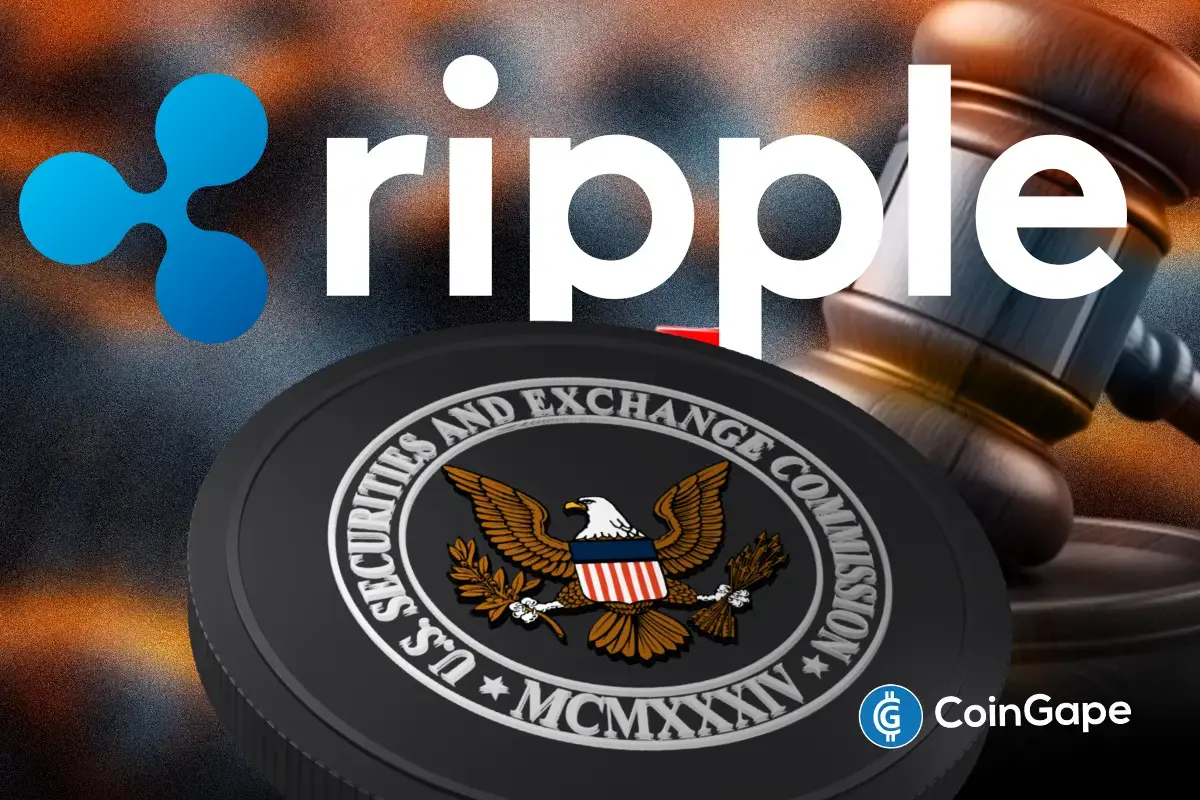Regulation
XRP, SOL, SHIB ETF’s Unlikely to See SEC Approval: JPMorgan

While there have been recent positive developments in the space of crypto ETFs, including the approval of 8 Ethereum ETFs, JPMorgan is still doubtful about the chances of the US SEC approving similar ETFs for Solana (SOL), XRP, and Shiba Inu (SHIB).
JPMorgan Stance on Crypto ETF’s Approvals
Nikolaos Panigirtzoglou, a managing director and global market strategist at JPMorgan, said that the recent decision of the SEC to approve Ethereum ETFs was ‘’stretched’’ especially given the on-going debate on whether Ethereum should be classified as a security.
Panigirtzoglou stated that as the SEC classifies most other cryptos as securities, it is unlikely that ETFs related to Solana and Shiba Inu will be approved anytime soon.
”We don’t believe that the SEC would go even further by approving Solana or other token ETFs given the SEC has stronger (relative to Ethereum) opinion that tokens outside bitcoin and Ethereum should be classified as securities,” he explained.
As Panigirtzoglou pointed out, the likelihood of more such products receiving SEC approval depends on US lawmakers enacting legislation that asserts that most cryptos are not securities, which does not have legislative backing at the moment.
Are XRP, SHIB ETF’s Looming?
At the same time, the Shiba Inu community is making progress in the creation of a specific ETF. According to a Shytoshi Kusama, who is credited with involvement in the Shiba Inu ecosystem, took to social media platform X to congratulate Ethereum on its ETF approval while suggesting the possibility of a SHIB ETF.
Moreover, on February 25, a petition was filed on change.org urging Grayscale Investments CEO Michael Sonnenshein to consider launching a Shiba Inu-specific ETF. This has come at a time when there is increasing demand for ETFs that track various cryptos, such as Solana and XRP.
Similarly, Ripple (XRP) investors are closely observing the ongoing case between SEC and Ripple, which is crucial for the further development of XRP-based financial instruments. However, there are still legal issues that cloud the possibility of an XRP ETF, but the company’s head, Brad Garlinghouse, is confident about its potential.
On the other hand, other analysts, such as Geoffrey Kendrick from Standard Chartered, hold the opinion that the SEC does not consider tokens like XRP as securities because they are based on technological similarities to ETH.
Will there be an XRP ETF in 2025 ?
— Vet 🏴☠️ (@Vet_X0) May 24, 2024
Concurrently, after the approval of Ethereum ETFs, debates about the future of ETFs for other cryptocurrencies, such as Solana and XRP, have arisen. A poll conducted by an XRP Ledger validator revealed that 66% of the participants expect the SEC to approve an XRP ETF by 2025. This view is supported by Standard Chartered who expects approval of both the SOL and XRP ETFs by the same year.
Read Also: Polygon Price Analysis Hints Major Reversal to $1.5 As Buyers Hit Key Resistance
The presented content may include the personal opinion of the author and is subject to market condition. Do your market research before investing in cryptocurrencies. The author or the publication does not hold any responsibility for your personal financial loss.
Regulation
US SEC Drops Charges Against Hawk Tuah Girl Hailey Welch

Hawk Tuah girl Hailey Welch, known for her association with the controversial $HAWK token, has been cleared of any wrongdoing after a lengthy investigation by the U.S. Securities and Exchange Commission (SEC). The SEC has decided not to press charges against Welch in connection with the rapid rise and subsequent collapse of the meme-based cryptocurrency.
US SEC Investigation Into Hawk Tuah Girl Concludes Without Charges
The SEC had launched an investigation into the $HAWK token after its dramatic price drop. The token, which was linked to Welch’s viral persona, initially saw a market cap surge to $490 million before crashing by over 90%. Investors who were impacted by the crash filed a lawsuit against those behind the project, alleging that the coin had been promoted and sold without proper registration.
Hawk Tuah girl Hailey Welch, who cooperated fully with the investigation, expressed relief after the SEC’s decision. “For the past few months, I’ve been cooperating with all the authorities and attorneys, and finally, that work is complete,” Welch told TMZ.
Her attorney, James Sallah, confirmed that the SEC had closed the case without any findings against her, adding that there would be no monetary sanctions or restrictions on Welch’s future involvement in cryptocurrency or securities.
This Is A Developing News, Please Check Back For More
Disclaimer: The presented content may include the personal opinion of the author and is subject to market condition. Do your market research before investing in cryptocurrencies. The author or the publication does not hold any responsibility for your personal financial loss.
Regulation
Sonic Labs To Abandon Plans For Algorithmic USD Stablecoin, Here’s Why

Barely a week after hinting at launching an algorithmic USD stablecoin, Sonic Labs is shuttering its plans. Sonic Labs co-founder Andre Cronje revealed that incoming stablecoin regulation in the US contributes to the change of stance.
Sonic Labs Makes U-Turn Over Algorithmic USD Stablecoin
In mid-March, Sonic Labs disclosed plans for a yield-generating algorithmic stablecoin for its blockchain. However, new developments in the US regulatory landscape are forcing the company to ditch its algorithmic stablecoin ambitions.
Sonic Labs co-founder Andre Cronje confirmed the change in direction via an X post following the release of the full draft of the STABLE Act by Congress for clearer oversight. According to the text, lawmakers are pushing for a two-year moratorium on algorithmic stablecoin, souring Sonic Labs plans.
Unlike mainstream stablecoins backed by fiat or other commodities, algorithmic stablecoins rely on smart contracts to maintain their peg. The 2022 implosion of Terra’s ecosystem following the de-pegging of its TerraUSD (UST) algorithmic stablecoin stunned regulators.
“We will no longer be releasing a USD-based algorithmic stablecoin,” said Cronje.
In a light-hearted note, community members teased potential strategies for Sonic Labs to sidestep incoming stablecoin regulation. Apart from the loophole of launching the algorithmic stablecoin before the regulation goes live, Cronje teased an algorithmic dirham that will be denominated in USD.
Industry Players Are Bracing For New Stablecoin Regulations
Stablecoin issuers are steeling themselves for incoming stablecoin regulations in the US. While the GENIUS Act and STABLE Act continue to inch forward, there are common denominators in both bills.
For starters, there is the requirement for equivalent reserves at a 1:1 ratio with both bills steering clear of algorithmic stablecoins. The White House is favoring the GENIUS Act over the STABLE Act as lobbyists rally to stifle the possibility of a Conference Committee.
Authorities are targeting stablecoin regulation to reach Trump in two months as issuers jostle for position. Tether, Circle, and Ripple are staking their claims to lead the US government’s ambitions to rely on stablecoins to maintain the dollar’s dominance.
Disclaimer: The presented content may include the personal opinion of the author and is subject to market condition. Do your market research before investing in cryptocurrencies. The author or the publication does not hold any responsibility for your personal financial loss.
Regulation
FDIC Revises Crypto Guidelines Allowing Banks To Enter Digital Assets

The Federal Deposit Insurance Corporation (FDIC) has updated its guidelines, enabling banks to engage in cryptocurrency-related activities without seeking prior approval. This new policy shift signals a change in the FDIC’s approach to the growing role of digital assets in the banking sector.
New FDIC Guidelines on Crypto-Related Activities
The FDIC has issued a new Financial Institution Letter (FIL-7-2025), which provides updated guidance for banks looking to engage in cryptocurrency activities. The new guidance rescinds the previous policy set out in FIL-16-2022, which required banks to notify the FDIC before engaging in such activities.
Under the new rules, banks can now participate in permissible crypto-related activities without waiting for FDIC approval, as long as they manage the risks appropriately.
This change is seen as a shift in the FDIC’s stance, following the agency’s earlier stance that required prior approval for crypto engagements. FDIC Acting Chairman Travis Hill expressed that this new approach aims to establish a more consistent framework for banks to explore and adopt emerging technologies like crypto-assets and blockchain.
“With today’s action, the FDIC is turning the page on the flawed approach of the past three years,” said Hill in a statement.
This Is A Developing News, Please Check Back For More
Disclaimer: The presented content may include the personal opinion of the author and is subject to market condition. Do your market research before investing in cryptocurrencies. The author or the publication does not hold any responsibility for your personal financial loss.
-

 Altcoin21 hours ago
Altcoin21 hours agoDogecoin Price Set To Reach $1 As Once In A Year Buy Opportunity Returns
-

 Market24 hours ago
Market24 hours agoCoinbase to Rival Binance With BNB Perpetual Futures
-

 Market23 hours ago
Market23 hours agoSatLayer CEO Luke Xie Talks Bitcoin Restaking and DeFi’s Future
-

 Altcoin23 hours ago
Altcoin23 hours agoBlessing or Curse for the Crypto Market?
-

 Market22 hours ago
Market22 hours agoHedera Falls 4% as Bears Dominate: What’s Next for HBAR?
-

 Regulation17 hours ago
Regulation17 hours agoFDIC Revises Crypto Guidelines Allowing Banks To Enter Digital Assets
-

 Altcoin22 hours ago
Altcoin22 hours agoWhy the US SEC Is Delaying the Ripple Case?
-

 Ethereum21 hours ago
Ethereum21 hours agoEthereum Fails To Break $2,100 Resistance – Growing Downside Risk?





















✓ Share: